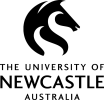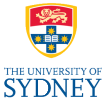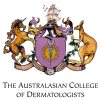Ramadan is the holy month celebrated by Muslims during which they abstain from eating and drinking from sunrise to sunset. The purpose is to understand the sufferings of those who are not as fortunate to obtain adequate quantities of food and water to require sustaining themselves. It is meant to teach patience, modesty and spirituality.
There are 2 meals that one has during Ramadan. The first one is known as Suhoor. This meal is had before sunrise and the other meal is had after sunset which is known as Iftaar. It is important to not overindulge during Ramadan and eat right to maintain good health. In fact, Ramadan is a great time for your body to detoxify and for you make changes to unhealthy eating habits.
Choosing Foods
Managing without food and drink throughout the day is not an easy task. However filling up on unhealthy foods during Ramadan does not make it easier and in fact defies the very purpose of Ramadan. One should eat as much as required by the body not more or less. It is important to be smart and selective during Suhoor and Iftaar and cautiously only choose those foods which provide nutrition and keep you full for longer periods of time.
One needs to follow the same overarching principle of a balanced diet including fruits, vegetables, wholegrain breads and cereals, low fat dairy, healthy fats and adequate quantities of water to keep you well hydrated throughout the day. The benefit we have here in Australia is the climate right now during which we do not loose as much water through sweat as we do during summer.
What foods to eat during Suhoor?
It is a good idea to include a meal containing protein such as a piece of lean chicken(90-100g) or 2 large eggs along with a 1 slice of wholemeal pita khaboos (bread), avocado spread and vegetables such as tomato, spinach and lettuce. For some people it’s hard to have such a large meal first thing after waking up. Hence for those people another option includes, weetbix with milk topped with nuts and banana is a good option. These kind of meals containing protein and Low GI carbohydrates keep you full for longer and help in sustaining you throughout the day.
Low GI carbohydrates are those carbohydrates that get absorbed slowly in the blood as opposed to High GI foods such as white bread, biscuits, cakes and pastries which get absorbed very quickly and drop down dramatically causing you to feel hungry sooner. In addition to making you feel full, protein is also important to ensure one does not loose muscle mass during Ramadan. The avocado/nuts are healthy fats that give you energy, enhance your meal nutritionally and promote good heart health.
What foods to eat during Iftaar?
The common practice is to break the fast with 2 dates and a glass of water. Dates are highly nutritious as they contain fibre, vitamins and minerals. Lemon and mint leaves can be added to the water. Proceeding the dates, one can have a chicken and lentil soup with half a cup of cooked brown rice and vegetables or grilled kebabs (chicken/turkey/lamb) with Fattoush (vegetables and pita bread salad) and some hummus (dip made out of chickpeas).
If there is an opportunity to eat another snack, it can be a piece of fruit such as an apple and a tub of low fat yogurt (200g). Desserts are okay to have once in a while but not every day. If you feel like you have a very sweet tooth, a square of chocolate every day is okay. Make sure the chocolate bar lasts longer by not exceeding that one square.
Food and Drinks to avoid
Deep fried foods, soft drinks, excessive amount of sweet foods such as cakes, pastries, ice cream and chocolate. These foods are simply empty calories and do not contribute to nourishing your body and keeping you full. In fact, they can lead to issues such as constipation which can be a problem for some people as you are not having water during the day. Caffeinated drinks such as coffee also work as a diuretic which causes you to loose more water.
Sleep and Exercise
In addition to maintaining a healthy diet, it is important to consider sleep and exercise patterns. 6-7 hours of sleep is must which may require a bit of effort but it is absolutely essential as lack of sleep increases the amount of ghrelin hormone produced in the body which increases your appetite.
Exercise will help you not only maintain your weight but also enhance your energy levels and boost your mood. This does not mean that one overexerts them self through strenuous exercise; exercise during Ramadan can include walking or simple stretching exercises.
If you have questions about diet and nutrition contact your local doctor, who will arrange for you to see a dietitian and nutritionist. We‘ll provide you with a simple and effective routine targeted to your concerns. Contact us today!
The post Healthy eating during Ramadan appeared first on ENT Wellbeing Sydney.










